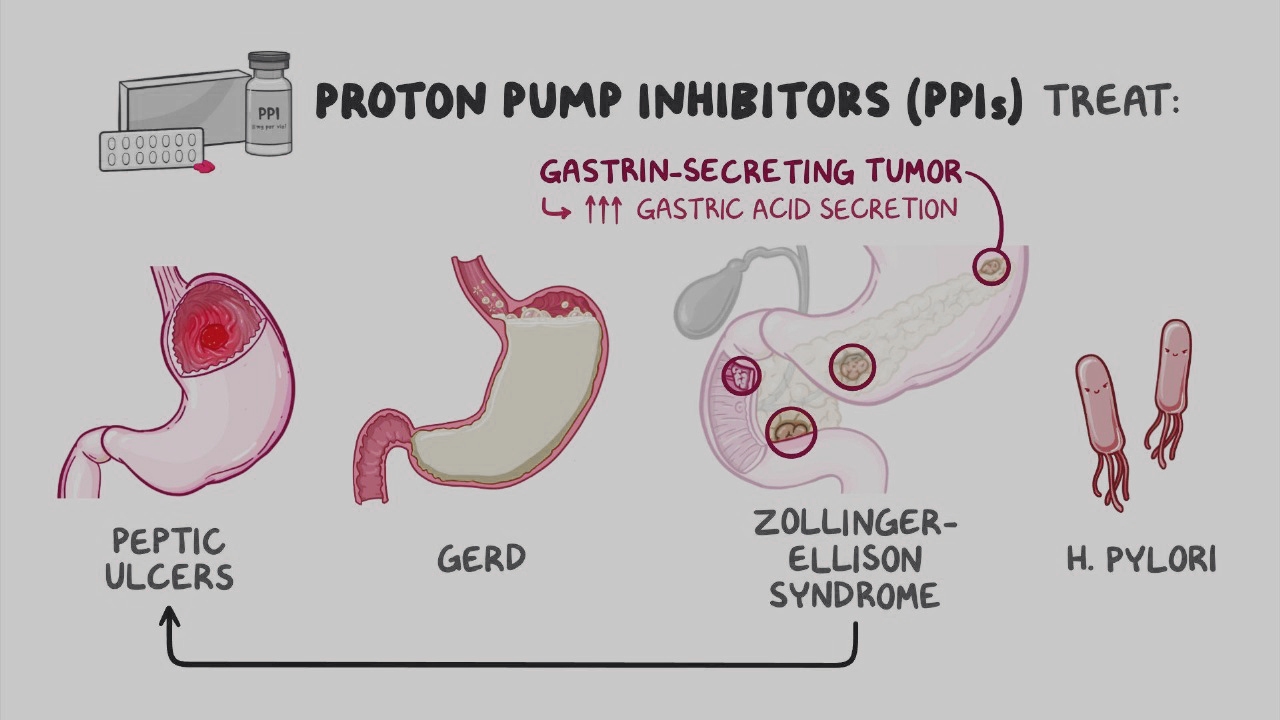
Proton Pump Inhibitors
Inhibitors of the H+/K+-ATPase proton pump
The list in this class includes
- Esomeprazole
- Lansoprazole
- Omeprazole
- Pantoprazole
- Rabeprazole
These drugs bind with H+/K+- ATPase enzyme system also called proton pump. Thus suppress the secretion of hydrogen ion into gastric lumen area.
Mechanism of action of proton pump inhibitors
These drugs are prodrugs because these are manufactured enteric coated to prevent acidic premature degradation in stomach. Alkaline PH of stomach remove coating and as a result drug is released, absorbed, and transported to the parietal cell canaliculus. This active form of drug reacts with cysteine residue of the H+/K+- ATPase, establishing a covalent bond. The standard doses of PPIs block 90% of gastric secretion. However, acid secretion starts in 1 to 2 hours of administration of lansoprazole and earlier with omeprazole. Omeprazole is available with sodium bicarbonate in powder form because it enhances absorption. Besides, these are taken orally.
Therapeutic uses of PPIs
These are preferred over H2 receptor antagonists for the treatment of
- Erosive esophagitis
- Active duodenal ulcers
- Ling term treatment of pathologic hypersecretory conditions, for example Zollinger- Ellison syndrome.
- Approved for treating GERD. PPIs reduces risk of ulcer by the use of aspirin and NSAIDs
- Used with antimicrobials to treat H-pylori.
How to take proton pump inhibitors?
PPIs are more effective when taken 30 minutes before breakfast are large meal of the day.
Pharmacokinetics of PPIs
- All proton pump inhibitors are delay released formulations. Thus, these are administered orally for optimum effectiveness.
- Metabolites of these agents are excreted through urine and feces.
Adverse effects of proton pump inhibitors
Incidence of gastric carcinoid tumors increases in animals.
Omeprazole inhibits the metabolism of warfarin, diazepam, phenytoin and cyclosporin. However other PPIs don’t interact with other drugs.
Prolonged therapy with PPIs results in low vitamin B12 due to constant less release of gastric acid which is required for its absorption.
Moreover, PPIs suppress absorption of calcium carbonate by increasing gastric PH.
There are increased risk of diarrhea and Clostridium difficile colitis in patients receiving PPIs.